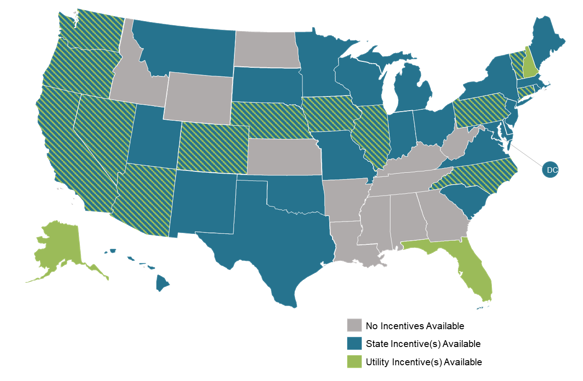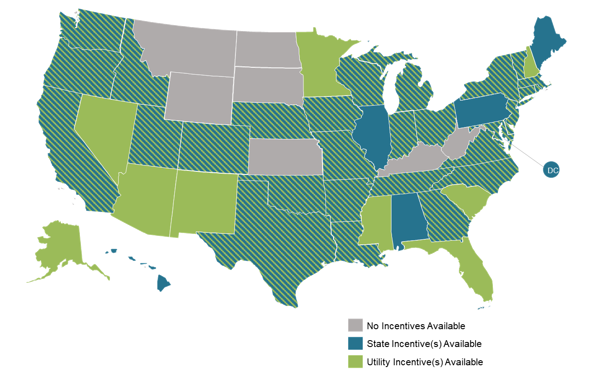Raleigh, NC – (August 5, 2022) The N.C. Clean Energy Technology Center (NCCETC) released its Q2 2022 edition of The 50 States of Electric Vehicles. The quarterly series provides insights on state regulatory and legislative discussions and actions on electric vehicles and charging infrastructure.
The report finds that 47 states and the District of Columbia took actions related to electric vehicles and charging infrastructure during Q2 2022 (see figure below), with the greatest number of actions relating to rebate and grant programs, rate design for vehicle charging, and state procurement of electric vehicles.
A total of 569 electric vehicle actions were taken during Q2 2022, with the most active states being Massachusetts, California, Illinois, New York, Minnesota, Michigan, and New Jersey. So far in 2022, at least 82 bills related to transportation electrification have been enacted across 35 states.
Q2 2022 State and Utility Action on Electric Vehicles
![]()
The report discusses three trends in electric vehicle actions taken in Q2 2022: (1) states encouraging zero-emission school bus deployment, (2) utilities proposing charging-as-a-service programs, and (3) states and utilities continuing to examine demand charge alternatives for commercial charging.
“There was a flurry of legislative activity across the second quarter. Along with expanding some existing financing programs to include EV infrastructure, legislators ordered the creation of new incentive programs, implemented new or more stringent procurement targets, and even weighed in on permitting issues,” observed Rebekah de la Mora, Policy Analyst at NCCETC.
The report notes five of the top policy developments of the quarter:
- Indiana and New Jersey regulators approving new utility incentive programs;
- Maine lawmakers adopting zero-emission vehicle targets;
- The New Hampshire Public Utilities Commission approving new electric vehicle charging rates;
- Arizona utilities filing transportation electrification plans; and
- California regulators filing proposed regulations establishing targets for zero-emission vehicle sales.
“We have seen utilities developing creative programs for EVs,” noted Brian Lips, Senior Policy Project Manager at NCCETC. “From subscription rates coupled with managed charging, to EV service equipment tariffs, utilities are exploring new services to offer their customers.”
View the 50 States of Electric Vehicles Q2 2022 Executive Summary
View and Purchase the 50 States of Electric Vehicles Q2 2022 update FULL Report
View other 50 States Reports – Solar, Grid Modernization and Electric Vehicles
ABOUT THE N.C. CLEAN ENERGY TECHNOLOGY CENTER
The N.C. Clean Energy Technology Center, as part of the College of Engineering at North Carolina State University, advances a sustainable energy economy by educating, demonstrating and providing support for clean energy technologies, practices and policies. It serves as a resource for innovative, sustainable energy technologies through technology demonstration, technical assistance, outreach and training. For more information about the Center, visit: http://www.nccleantech.
Media Contact: Shannon Helm, NCCETC, shannon_helm@ncsu.edu


